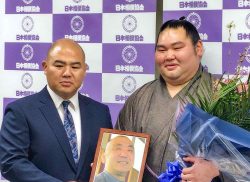11:29 JST, December 1, 2020
For the economy to recover, the rapid spread of the novel coronavirus must be stopped. One can only feel frustrated at the government’s response.
Regarding the Go To Travel tourism promotion campaign, the government excluded travel to the cities of Osaka and Sapporo from the subsidized program, based on a proposal by a subcommittee of experts on measures against coronavirus infection.
But soon after, the subcommittee asked the government to also exclude travel that departs from those two cities, and Prime Minister Yoshihide Suga called for people to refrain from trips that originate there.
Because the government claims that it is difficult to specify where users of the campaign live, it did not go beyond asking for people to refrain from travel that starts from the two cities. It is questionable whether that call will be effective while the government continues to provide subsidies for such travel.
The Go To campaigns are symbolic measures to encourage people to go out. The government’s review of the campaigns’ operations appears to be minimal because it fears criticism that its policies have failed.
It is important to stimulate consumption, to strike a balance between measures against the infectious disease and economic activities. But it is reasonable to postpone stimulating consumption at a time when the number of infected people is rapidly increasing. The government should be flexible in changing its policies.
The government has designated the period through around Dec. 15 as the “critical three weeks,” asking the public to take thorough measures to prevent the spread of the coronavirus. However, the public will be confused if the government encourages them to travel while also stressing that this is a critical time for containing infections.
To have the public share its sense of crisis, the government should send a message based on clear guidelines.
If infections are not brought under control, it will not only delay economic revitalization but also heighten people’s anxiety about the Tokyo Olympics scheduled for next year. For the time being, the government needs to give top priority to preventing infection.
Economic Revitalization Minister Yasutoshi Nishimura, who also is in charge of the response to the coronavirus, said he wants prefectural governors to decide first whether to suspend the campaign. Although the situation varies from region to region, it is hard to understand the central government’s stance to wait for requests from local governments. It is vital for the central government to take the initiative in dealing with issues related to the coronavirus.
Tokyo Gov. Yuriko Koike said it was the central government that should ponder whether to suspend the campaign.
This is not a time to shift blame onto each other. In urban areas, the percentage of hospital beds being utilized has increased and the number of patients with serious symptoms has also grown. It is essential for the central and local governments to cooperate so that delays in making decisions will not lead to irreparable consequences.
Many people are cooperating on measures to prevent infection. In areas where infections are spreading, most eating and drinking establishments have accepted requests to shorten their business hours.
About 7 trillion yen in reserve funds earmarked in the supplementary budgets has not been used. It is important to use the funds to continue business operations, maintain employment and support medical institutions.
(From The Yomiuri Shimbun, Dec. 1, 2020)
Top Articles in Editorial & Columns
-

Riku-Ryu Pair Wins Gold Medal: Their Strong Bond Leads to Major Comeback Victory
-

Reciprocal Tariffs Ruled Illegal: Judiciary Would Not Tolerate President’s High-Handed Approach
-

China Provoked Takaichi into Risky Move of Dissolving House of Representatives, But It’s a Gamble She Just Might Win
-

Japan’s Plan for Investment in U.S.: Aim for Mutual Development by Ensuring Profitability
-

Flu Cases Surging Again: Infection Can Also Be Prevented by Humidifying Indoor Spaces
JN ACCESS RANKING
-

Producer Behind Pop Group XG Arrested for Cocaine Possession
-

Japan PM Takaichi’s Cabinet Resigns en Masse
-

Man Infected with Measles Reportedly Dined at Restaurant in Tokyo Station
-

Israeli Ambassador to Japan Speaks about Japan’s Role in the Reconstruction of Gaza
-

Videos Plagiarized, Reposted with False Subtitles Claiming ‘Ryukyu Belongs to China’; Anti-China False Information Also Posted in Japan
























